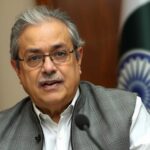Safeguarding the Bangladesh Army Amid Political Turbulence
Bangladesh’s military is crucial to national sovereignty and stability, especially following the recent political transition. However, there are increasing efforts to undermine the military’s legitimacy through social media campaigns and speculative reports, which could jeopardize national security. To navigate these challenges, it is essential for the military to remain apolitical while ensuring public trust and combating disinformation.
The military plays a pivotal role in safeguarding a nation’s sovereignty, and history illustrates the dire consequences of internal weakening. Since its inception in 1971, the armed forces of Bangladesh have not only been crucial for defense but also act as a stabilizing factor amid political turbulence. As the country experiences a delicate phase following the ousting of Sheikh Hasina’s government, the army’s position becomes increasingly significant, yet it faces threats from various forces aiming to undermine its authority.
Recent weeks have witnessed a surge in targeted narratives aiming to discredit the Bangladesh Army. Activists, many based abroad, have leveled accusations that the military is manipulating the transitional government. These comments, including controversial statements from National Citizen Party (NCP) representatives, showcase a calculated attempt to delegitimize the military’s influence, which is essential for national stability.
The strategy of delegitimizing a military is not new; countries like Turkey and Pakistan have seen their armed forces become battlegrounds for political factions after losing legitimacy. With the downfall of Sheikh Hasina’s government in 2024, it is vital for Bangladesh to steer clear of such outcomes. The political transition appears to be exploited by remnants of the old regime, fostering an environment of chaos that could turn public sentiment against the military.
The normalization of military disparagement as a mere political maneuver poses a grave threat to the state. Historical precedents, such as Myanmar’s political entanglements leading to repression and coups, serve as stark reminders of the repercussions when military institutions are embroiled in politics. Though accountability is crucial, there is a significant distinction between oversight and unwarranted character attacks on the military.
Additionally, external pressures exacerbate the situation. Reports from Indian media about unrest within the Bangladesh Army serve as alarming warning signs and have been categorically denied by the Inter-Services Public Relations (ISPR). Such narratives, if unchallenged, could weaken the military’s credibility internationally and make Bangladesh susceptible to external manipulations and coercions.
To navigate this critical juncture, Bangladesh must endeavor to maintain the military’s position above political affiliations while enhancing its integrity through sound governance. Political actors and media personnel must refrain from reckless allegations that jeopardize not only the armed forces but the nation at large. Additionally, countering disinformation campaigns is vital to restore public trust.
Further, it is paramount that the military remains a guardian of national stability without engaging in partisan disputes. The interim administration should prioritize strengthening civilian institutions to avert power vacuums, thereby reducing the likelihood of military involvement in governance. The preservation of military professionalism and unity is essential not only for internal coherence but also for safeguarding national sovereignty amidst geopolitical complexities.
As Bangladesh approaches a pivotal moment, it can either foster stability through a respected military or descend into chaos with a fractured army. It is imperative to resist efforts aimed at politicizing or undermining military forces to ensure a strong and unified entity that is essential for the nation’s survival.
In conclusion, the current landscape in Bangladesh highlights the critical importance of maintaining the integrity and professionalism of the military in the face of both internal and external challenges. Historical lessons indicate the precarious nature of a nation when its armed forces are politicized or undermined. To safeguard national sovereignty and stability, Bangladesh must prioritize keeping its military apolitical and resist the narratives that threaten to weaken its foundational role.
Original Source: www.nation.com.pk








Post Comment